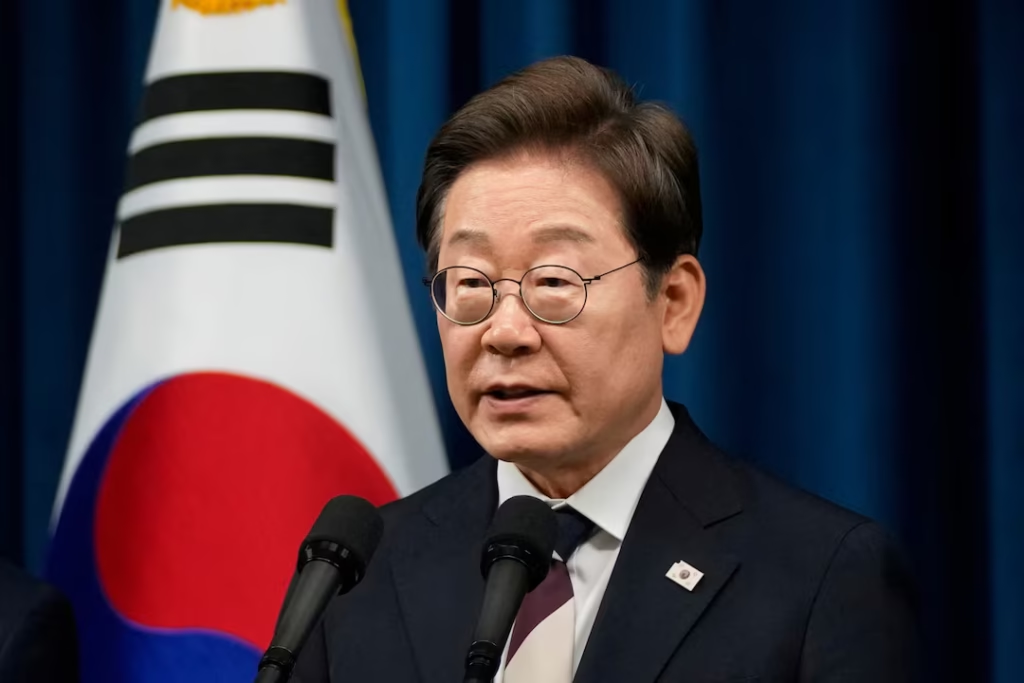Context:
• Liberal candidate Lee Jae-myung has won the vote to become South Korea’s new president after a snap election triggered by a brief period of martial law imposed by the now-impeached former leader, Yoon Suk Yeol.
• With 100% of the ballots counted, Lee won 49.42% of nearly 35 million votes cast, while his conservative rival Kim Moon-soo had taken 41.15%, according to national election commission data, which said turnout was the highest for a presidential election since 1997.
Who is Lee Jae-myung, South Korea’s new leader?

• Lee Jae-myung is a veteran politician with 20 years of experience as an elected official.
• Lee Jae-myung, a 61-year-old is expected to be sworn in on Wednesday as the country’s 14th president.
• He will serve a single five-year term, as mandated by the South Korean constitution.
• Lee vowed before the election that he would work to further develop the U.S.-South Korea relationship “into a future-oriented, comprehensive strategic alliance.”
About South Korea:
• Location: South Korea is situated in East Asia, bordered to the north by the Democratic People’s Republic of Korea (North Korea), to the east by the East Sea (Sea of Japan), to the south by the East China Sea, and to the west by the Yellow Sea.
• Political Division: The Korean Peninsula is divided along the 38th Parallel, also known as the Demilitarised Zone (DMZ).
• Capital: Seoul.
• Major Rivers: Han River, Nakdong River.
• Major Islands: Jeju Island in the Korea Strait is the largest island.
• Mountains: The country is dominated by the Taebaek Mountain range along the eastern coast.
• Highest Peak: Mount Halla on Jeju Island (1,950 meters), an extinct volcano.
India-South Korea Relations:
• The earliest evidence about India-South Korea relations dates back to the 3rd century when Buddhism reached the Korean shores.
• India has played a very positive and constructive role ever since Korea attained independence in 1945.
• The mutual trust and respect shown by both countries can be gauged from the fact that during the Korean War in 1953, both sides accepted a resolution brought out by India eventually and there was a ceasefire agreement between the sides on 27th July 1953.
• Bilateral relations between India and South Korea were initiated in 1962. The relations were upgraded, and Ambassadors were appointed by both countries in 1973.
• With the passage of time, the relationship kept on improving because of the progressive policies of the successive Indian governments which kept South Korea as a partner in all economic, political, and cultural decisions of Southeast Asia.
• The Act East, as well as the Look East policies of the Indian Government, has proved to be hugely successful as it has helped in bringing both countries closer to each other.
• The constant churning in the Indo-Pacific region due to the assertive nature of China means relations with South Korea hold immense significance for India.

